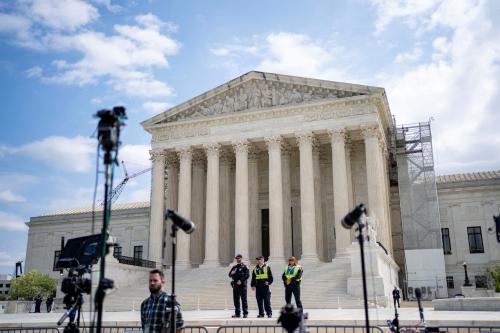The share of felony defendants in the criminal justice system who are required to post bail to avoid pre-trail detention is increasing, while the share released without bail is dropping. Simultaneously the amount of time from arrest to adjudication has increased in recent years. These and related factors have significant negative economic impacts on the individuals involved, and are linked to increased recidivism. In this episode, Jay Shambaugh, the director of the Hamilton Project at Brookings and a senior fellow in Economic Studies, talks about new research on monetary sanctions in the criminal justice system. Also, John Ratliff, in a new Metro Lens, talks about how America’s governors are pursuing digital innovation policies.
Related Content:
Nine Facts about Monetary Sanctions in the Criminal Justice System
Proposals for Improving the U.S. Pretrial System
Addressing Modern Debtors’ Prisons with Graduated Economic Sanctions that Depend on Ability to Pay
A Proposal to End Regressive Taxation through Law Enforcement
Subscribe to Brookings podcasts here or on iTunes, send feedback email to [email protected], and follow us and tweet us at @policypodcasts on Twitter.
The Brookings Cafeteria is part of the Brookings Podcast Network.




Commentary
PodcastFixing bail, fines, and fees in the criminal justice system
March 22, 2019